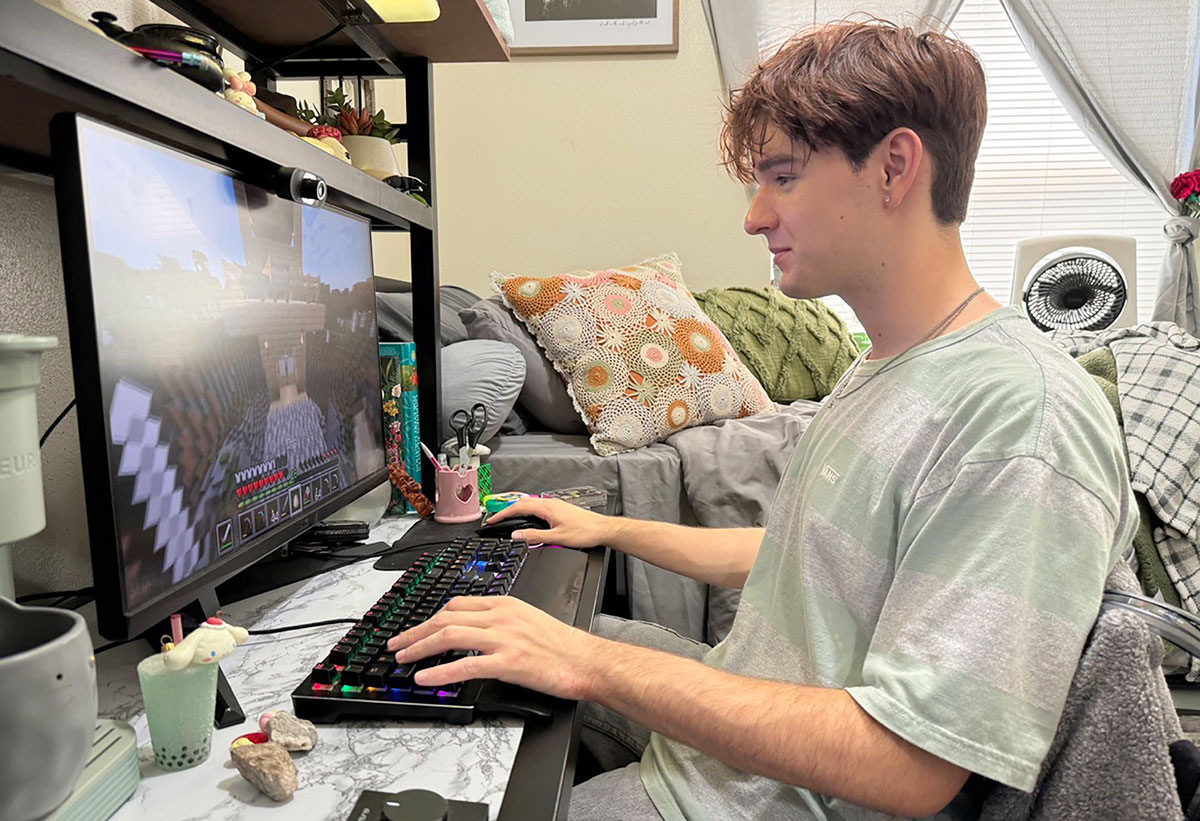
A new Wi-Fi system was installed in all dormitories in Cardinal Village over the summer. Steven Veron, LU assistant vice president of I.T. Operations, said the old system struggled with the volume of use in the dorms.
“There’s 2,500 beds in Cardinal Village,” he said. “When you had 2,500 students getting on the network it really started slowing down, because everybody connected to the same Wi-Fi. The main issue with the old network was segmentation.”
Segmentation refers to how the available network is subdivided. Veron said the problem was tackled with the implementation of the new network.
“Every single room in Cardinal Village got a little white box on their wall — the wireless access points,” he said. “Each of those wireless access points broadcasts their own Wi-Fi network, and each student has their own personal network only they can access with their pre-shared key.”
Before the segmentation, all devices were connected in the same network. Because devices in the same network communicate with each other, that caused a lot of background noise and slowed the Wi-Fi’s speed, Veron said.
“With 2,500 devices logged in, it’s like filling up the Montagne Center and every person is talking at the same time,” he said. “You have to keep the noise level at a certain threshold.”
With the new network, the background noise is kept at a low level because the only devices that talk to each other are the ones in the new smaller networks. But it is not just the segmentation of the network that ensures better internet in Cardinal Village, Veron said.
“The new network, provided by Juniper, has an AI background component that can optimize it,” he said. “By using machine learning, it can recognize at what threshold which device performs poorly and then push it to a different wireless access point or switch to a different band. It also keeps track of the airwave frequency available and balances the background noise.” Veron said the situation has also improved significantly for gamers.
“When you connect your Xbox, you’re getting pure internet access for that device instead of having a thousand Xboxes in the same network,” Veron said. “Also, the additional LAN hardwire outlets improve the gaming experience in the dorms. Anybody who does serious gaming does not want to be on Wi-Fi. We want low latency.”
Blake Peña, Dayton sophomore and Campbell Hall resident, said the old Wi-Fi was choppy and would lag all the time. Also, he said, the download speeds were “horrible.”
“The new network is definitely an improvement,” Peña said. “I don’t lag anymore and also the video streaming has become much better.”
Veron said that, in order to comply with state laws, a way had to be found to allow TikTok in the residences while complying with the executive order by Texas Governor Greg Abbott from December 2022, that led to public universities banning TikTok on their networks.
“Obviously TikTok is used very highly,” Veron said. “The fact that we brought in a separate internet provider for Cardinal Village lets us make the case that no state business is conducted over here, because it is a residential network.”
This measure was implemented not only with a focus on TikTok, but also on possible future apps, he said.
“The governor’s order is very open ended,” Veron said. “So, if something else comes along, let’s say a new social media app rises to the top and everybody wants to use it, we don’t want students in Cardinal Village to be impacted if we have to block it on campus.”
The Wi-Fi upgrade is part of a larger effort by the I.T. department to implement fast internet connection all over campus, Veron said.
“A lot of our outdoor spaces are covered, but we still have to get it all on the same system,” he said. “The end goal would be that you can leave your dorm and go all the way from Campbell Hall to the Business Building and maintain Wi-Fi coverage the entire way. We are working on that proposal now to get it deployed by next year.”
